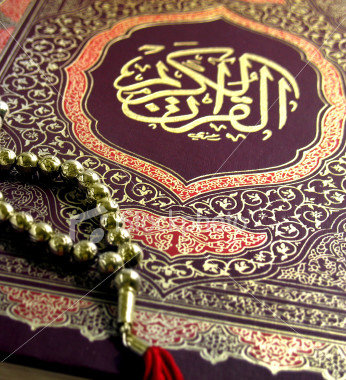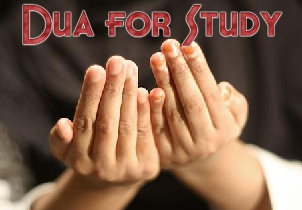Posts Tagged ‘conservative’
- In: All | Allah الله | Islam | MC-Islam | Miss-Conception
- Leave a Comment

Non-Vegetarian food Makes Muslims Violent
Science tell us that whatever one eats, it has an effect on one’s behavior. Why then, does Islam allow Muslims to eat non-vegetarian food, since eating of animals could make a person violent and ferocious?
Answer:
1. Only eating of herbivorous animals allowed . I agree that, what a person eats has an effect on his behaviour. This is one of the reasons why Islam prohibits the eating of carnivorous animals like lion, tiger, leopard, etc. who are violent and ferocious. The consumption of the meat of such animals would probably make a person violent and ferocious.
Islam only allows the eating of herbivorous animals like cow, goat, sheep, etc. that are peaceful and docile. Muslims eat peaceful and docile animals because Muslims are peace loving and non-violent people.
2. The Qur’an says Prophet prohibits what is bad The Qur’an says:
“The Prophet commands them what is just and prohibits what is evil”.
“He allows them as lawful what is good (and pure) and prohibits them what is bad (and impure),” [Al-Qur’an 7: 157]
“So take what the Messenger assigns to you and deny yourselves that which he withholds from you.” [Al-Qur’an 59: 7]
For a Muslim, the Prophet’s statement is sufficient to convince him that Allah does not wish humans to eat some kinds of meat while allowing some other kinds.
3. Hadith of Mohammad (pbuh) prohibi-ting eating of carnivorous animals According to various authentic Ahadith narrated in Sahih Bukhari and Sahih Muslim including hadith narrated by Ibn Abbas in Sahih Muslim, Book of hunting and slaughter, Hadith No. 4752 and Sunan Ibn-I-Majah chapter 13 Hadith no. 3232 to 3234, the Holy Prophet (pbuh) prohibited the eating of:
(i) Wild animals with canine teeth, i.e. meat eating carnivorous animals. These are animals belonging to the cat families such as lion, tiger, cats, dogs, wolfs, hyenas, etc.
(ii) Certain rodents like mice, rats, rabbits with claws, etc.
(iii) Certain reptiles like snakes, alligators, etc.
(iv) Birds of prey with talons or claws, like vultures, eagle, crows, owl, etc.
There is no scientific evidence that proves beyond doubt that eating non-vegetarian food makes one violent.


 [post this Article on your facebook wall,and share with friends.click above “Share” button …]
[post this Article on your facebook wall,and share with friends.click above “Share” button …]


[where ever you post,please add source link.either in website or even in facebook NOTE…please….spread the link of site..]

![]() Note:I’d love to see who visit my website,your views about website. Click here to leave your feedback.
Note:I’d love to see who visit my website,your views about website. Click here to leave your feedback.

- In: All | Allah الله | Islam | MC-Islam | Miss-Conception
- 3 Comments

Muslims Worship Kaaba
Question:
When Islam is against idol worship why do the Muslims worship, and bow down to the Kaaba in their prayer?
Answer:
Kaaba is the Qibla i.e. the direction Muslims face during their prayers. It is important to note that though Muslims face the Kaaba during prayers, they do not worship the Kaaba. Muslims worship and bow to none but Allah. It is mentioned in Surah Baqarah: “We see the turning of thy face (for guidance) to the heavens: now shall We turn thee to a Qiblah that shall please thee. Turn then thy face in the direction of the Sacred Mosque: wherever ye are, turn your faces in that direction.”
1. Islam believes in fostering unity [Al-Qur’an 2:144] For instance, if Muslims want to offer Salaah (Prayer), it is possible that some may wish to face north, while some may wish to face south. In order to unite Muslims in their worship of the One True God, Muslims, wherever they may be, are asked to face in only one direction i.e. towards the Kaaba. If some Muslims live towards the west of the Kaaba they face the east. Similarly if they live towards the east of the Kaaba they face the west.
2. Kaaba is at the Centre of the World Map The Muslims were the first people to draw the map of the world. They drew the map with the south facing upwards and north downwards. The Kaaba was at the centre. Later, western cartographers drew the map upside down with the north facing upwards and south downwards. Yet, Alhamdullilah the Kaaba is at the centre of the world map.
3. Tawaf around Kaaba for indicating one God When the Muslims go to Masjid-e-Haram in Makkah, they perform tawaf or circumambulation round the Kaaba. This act symbolizes the belief and worship of One God, since, just as every circle has one centre, so also there is only one Allah (swt) worthy of worship.
4. Hadith of Umar (may Allah be pleased with him) Regarding the black stone, hajr-e-aswad, there is a hadith (tradition), attributed to the illustrious companion of the Prophet Muhammed (pbuh), Umar (may Allah be pleased with him). According to Sahih Bukhari, Volume 2, book of Hajj, chapter 56, H.No. 675. Umar (may Allah be pleased with him) said, “I know that you are a stone and can neither benefit nor harm. Had I not seen the Prophet (pbuh) touching (and kissing) you, I would never have touched (and kissed) you”.
5. People stood on Kaaba and gave the adhaan At the time of the Prophet, people even stood on the Kaaba and gave the ‘adhaan’ or the call to prayer. One may ask those who allege that Muslims worship the Kaaba; which idol worshipper stands on the idol he worships?
![]()

![]() Note:I’d love to see who visit my website,your views about website. Click here to leave your feedback.
Note:I’d love to see who visit my website,your views about website. Click here to leave your feedback.

ISLAMIC METHOD OF SLAUGHTERING ANIMALS APPEARS RUTHLESS :: Misconception about Islam
Posted on: November 21, 2009
- In: All | Allah الله | Islam | MC-Islam | Miss-Conception
- Leave a Comment

ISLAMIC METHOD OF SLAUGHTERING ANIMALS APPEARS RUTHLESS
Why do Muslims slaughter the animal in a ruthless manner by torturing it and slowly and painfully killing it?
The Islamic method of slaughtering animals, known as Zabiha has been the object of much criticism from a large number of people. One may consider the following points, which prove that the Zabiha method is not only humane but also scientifically the best:
1. Islamic method of slaughtering animal Zakkaytum is a verb derived from the root word Zakah (to purify). Its infinitive is Tazkiyah which means purification. The Islamic mode of slaughtering an animal requires the following conditions to be met:
a. Animal should be slaughtered with sharp object (knife) The animal has to be slaughtered with a sharp object (knife) and in a fast way so that the pain of slaughter is minimised.
b. Cut wind pipe, throat and vessels of neck Zabiha is an Arabic word which means ‘slaughtered’. The ‘slaughtering’ is to be done by cutting the throat, windpipe and the blood vessels in the neck causing the animal’s death without cutting the spinal cord.
c. Blood should be drained The blood has to be drained completely before the head is removed. The purpose is to drain out most of the blood which would serve as a good culture medium for micro organisms. The spinal cord must not be cut because the nerve fibres to the heart could be damaged during the process causing cardiac arrest, stagnating the blood in the blood vessels.
2. Blood is a good medium for germs and bacteria Blood is a good media of germs, bacteria, toxins, etc. Therefore the Muslim way of slaughtering is more hygienic as most of the blood containing germs, bacteria, toxins, etc. that are the cause of several diseases are eliminated.
3. Meat remains fresh for a longer time. Meat slaughtered by Islamic way remains fresh for a longer time due to deficiency of blood in the meat as compared to other methods of slaughtering.
4. Animal does not feel pain The swift cutting of vessels of the neck disconnects the flow of blood to the nerve of the brain responsible for pain. Thus the animal does not feel pain. While dying, the animal struggles, writhers, shakes and kicks, not due to pain, but due to the contraction and relaxation of the muscles defecient in blood and due to the flow of blood out of the body.
![]()










































 Oh Allah,Please Forgive me
Oh Allah,Please Forgive me Ex-Christians-Now Muslim,Alhamdulillah
Ex-Christians-Now Muslim,Alhamdulillah I Love My Prophet Muhammad s.a.w
I Love My Prophet Muhammad s.a.w
















![Fake Grave of Prophet Muhammad [pbuh]](https://islamgreatreligion.files.wordpress.com/2009/07/prophet_muhammad_pbuh_tomb4.jpg)


















Recent Comments